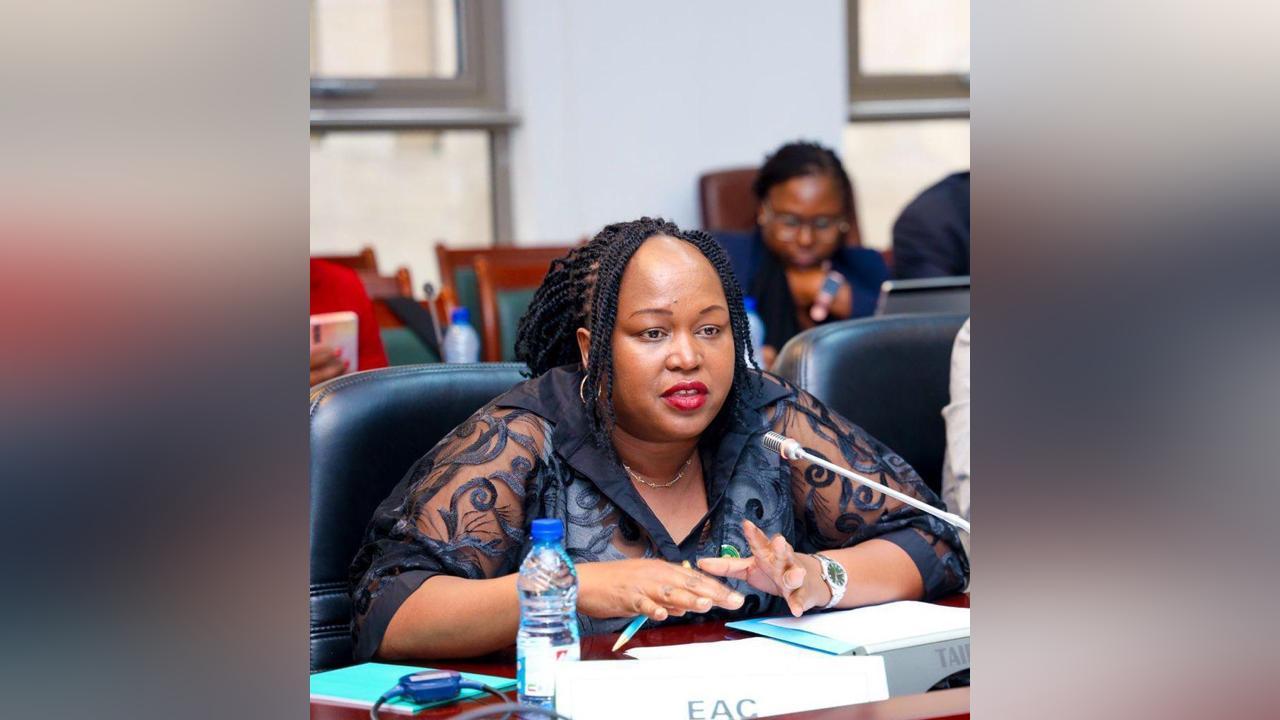Africa-Press – South-Sudan. The East African Community (EAC) is advocating for a unified, continent-wide resource mobilization strategy to accelerate Africa’s development agenda, according to the Secretary General.
EAC Secretary General Veronica M. Nduva called for this unified strategy after assuming leadership of the COMESA-EAC-SADC Tripartite Task Force (TTF), signaling a new push for integrated economic growth across the continent.
Speaking at a high-level roundtable convened by the African Union Development Agency-NEPAD in Malabo, Equatorial Guinea, she emphasized the urgent need to replace fragmented efforts with a harmonized approach.
“While the region has held various forums deliberating on strategies to pool resources for the continent, there is a need for a harmonized and streamlined approach to deliver a common strategy,” Nduva stated.
She stressed the importance of coordinated action to unlock large-scale financing for the African Union’s Agenda 2063.
The meeting, held on the sidelines of the 7th Mid-Year Coordination Meeting of the African Union, Regional Economic Communities (RECs), and Regional Mechanisms, brought together key African leaders and development partners to fast-track Agenda 2063 through effective, African-led resource mobilization.
Advocating for Blended Finance and Austerity
EAC Secretary General advocated for blended financing, leveraging public, private, and philanthropic capital.
She urged greater involvement of African philanthropists and the private sector in defining and deepening their contributions.
“It is also critical that we consider the adoption of austerity measures to ensure that resources allocated for projects deliver the intended outcomes,” she added, also underscoring the importance of integrating technology for improved planning, coordination, and implementation.
Echoing this call, AU Commission Chairperson, Mahmoud Ali Youssouf, stressed the urgency of moving away from donor dependency towards a model anchored in African ownership and alignment with the continent’s priorities.
EAC Takes Helm of Tripartite Free Trade Area (TFTA) Task Force
A significant development at the Summit was the EAC’s assumption of the Chairmanship of the COMESA-EAC-SADC Tripartite Task Force (TTF) from the Southern African Development Community (SADC) for the next year.
The Tripartite Free Trade Area (TFTA) Agreement officially entered into force on July 25, 2024, having reached the required 14 ratifications. Preparations are now underway for its formal launch during the forthcoming 4th Tripartite Summit.
As a key building block of the African Continental Free Trade Area (AfCFTA), the TFTA aims to integrate the economies of the three regional blocs, eliminate trade barriers, ease the movement of goods, services, and people, and stimulate industrial growth across the region.
Nduva outlined the EAC’s focus during its chairmanship: “We are committed to prioritizing the operationalization of the agreements made and the revival of the Industrial Development Pillar.”
Key priorities include advancing the finalization and exchange of tariff offers, completing and adopting the rules of origin, ratification of the TFTA Agreement by remaining Member/Partner States, and ratification of the Tripartite Agreement on the Movement of Business Persons.
EAC Secretary General also underscored the importance of strengthening the institutional framework around the TFTA, including the need for a dedicated Tripartite Secretariat to drive coordination and implementation.
“We see the Tripartite FTA as a strategic lever to deepen integration, enhance competitiveness, unlock intra-African trade and advance inclusive industrialization,” Nduva added.
The meeting also explored options for mobilizing resources to support the TFTA’s operations and activities.
The COMESA-EAC-SADC TFTA, anchored on three core pillars—market integration, infrastructure development, and industrial development—was first launched in June 2015 in Egypt by Heads of State and Government from the three blocs.
For More News And Analysis About South-Sudan Follow Africa-Press






